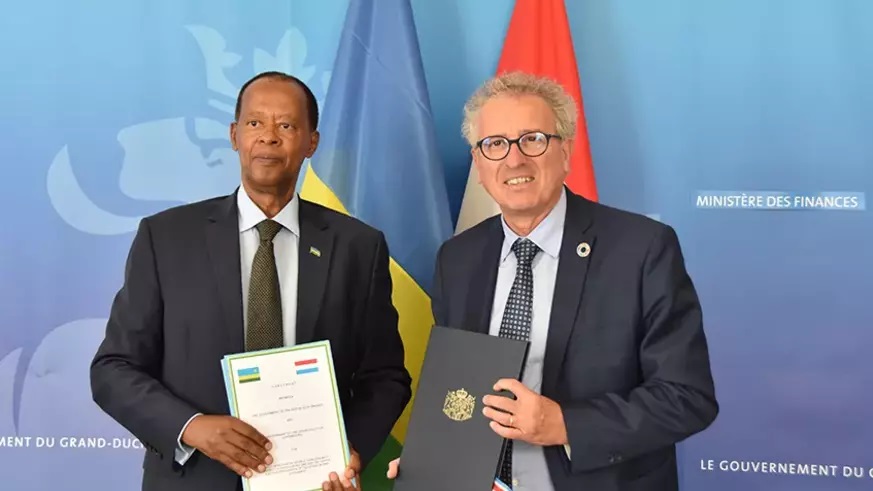Rwanda and Luxembourg have signed an agreement for the elimination of double taxation with respect to taxes on income and capital and the prevention of tax evasion and avoidance between the two countries.
The deal was signed on Wednesday, September 29, in Luxembourg City by Amb. Dieudonné Sebashongore, the Rwandan envoy to the Grand Duchy of Luxembourg with residence in Brussels, and Pierre Gramegna, the Luxembourg Minister of Finance.
The Double Taxation Avoidance Agreement (DTAA) – which becomes effective once both countries have ratified it – was initiated by Luxembourg in 2019. The first round of negotiations was held in January 2020 in Luxembourg City and second round was held, virtually, from November 26 to December 2, 2020, and the third and last round on April 27, this year.
Thomas Bertrand, Luxembourg Chamber of Commerce’s International Affairs Advisor for Africa told The New Times on Thursday that it was a great and important step in the bilateral relations of both countries.
Bertrand said: “During the trade mission led by the Luxembourg Chamber of Commerce in Rwanda in June 2019, we highlighted the relevance of such an agreement to boost economic exchanges between our two countries. We will come back to Rwanda with more tools to create partnerships between Rwandan and Luxembourgish companies.”
By signing this DTAA, Jackson Rugambwa, a tax policy analyst at Rwanda Finance Limited, told The New Times that Rwanda aims to attract investors from the region, the continent and the world thereby boosting investment inflow and outflow.
According to Rugambwa, as the Kigali International Financial Centre (KIFC) is positioning itself to become a financial service hub for all investors coming to Africa, signing a DTAA with Luxembourg facilitates investors to do business easily in Rwanda.
“Investors from Luxembourg wanting to invest in Rwanda or Africa can channel their investments through Rwanda and enjoy the incentives. Through KIFC investors can consolidate their financials in Rwanda and benefit from the treaty without having to go through double taxation,” he said.
Rwanda has a long track record of implementing the bilateral treaties that we sign,” he said, adding that both countries have interests and investors stand to benefit from preferential treatment once the treaty is ratified.
“We will be motivated to implement and enjoy the incentives provided for under the treaty. Secondly, through exchange of information for tax purposes; revenue mobilization is boosted. This is an important recognition of the foundations Kigali International Financial Centre is building as a Pan-African financial centre of reference; alongside other international financial centres on the continent.”
During the signing ceremony, both parties talked about the economic and diplomatic relations between Rwanda and Luxembourg as well as ways to further strengthen bilateral and multilateral cooperation.
Sebashongore said: “This agreement will allow both Luxembourg and Rwandan economic actors to go further in their mutual exchanges. For those who are willing to invest in Rwanda, including the diaspora, this agreement will increase their motivation and facilitate business.”
Gramegna said: “Our convention is another building block of the economic success that we wish. It will allow investment because without it the convention will be an empty shell.
On the surface, the signing of this convention may seem to be something administrative, but for all the countries with which Luxembourg has signed conventions on double taxation, the interest and the will is to strengthen bilateral relations, to make them easier, clearer and more transparent. In this way, we will be able to trade with each other and forge links that go beyond the framework of development aid.”

